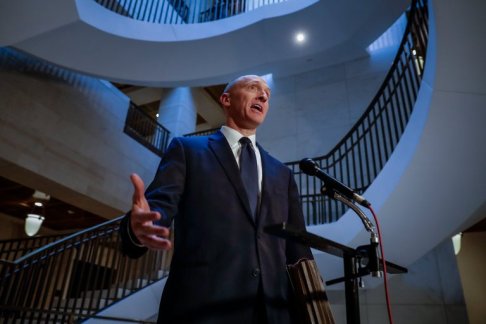One of the first segments of Radley Balko’s Rise of the Warrior Cop that grabbed my attention was his overview of the history of policing in the Occident. Specifically, as someone intrigued by Classical history and its parallels to the modern American Empire, I enjoyed the passages that elucidated the gradual accumulation of power among the praetorian guard in ancient Rome. Balko mentions how the guard transitioned from a paramilitary ring of bodyguards, then to a military policing force, before finally evolving into a powerful lobby that exerted influence over who the next emperor would be. Interestingly, this trajectory was mirrored by the ascendancy of the Schutzstaffel in Nazi Germany. Initially beginning as an elite subgroup of the SA with the specific task of guarding Hitler, their power exponentially expanded into a terrorizing police force in some regions, while simultaneously catapulting SS head Heinrich Himmler to the upper echelons of the Nazi regime. When reflecting on these roughly parallel developments of a police state, it appears that a common denominator is the emergence of police forces as political power brokers. If this were to happen in the United States, it would surely happen through the influence of the police lobby on members of Congress. Though lobbying is a problem in general for our democracy, the dangers of this lobby in particular are quite evident.
Although only a minor part of Balko’s book, I found his discussion on the constitutional grounds for drug prohibition to be extraordinarily fascinating, particularly because it shows how one ideology’s preferred judicial ruling may be used against them decades later. Of course, I am referring to the Supreme Court’s outrageous expansion of the Commerce Clause, which began with the New Deal-era court (Balko 87). Their decisions allowed Roosevelt to enact some of his progressive policies, and Roosevelt himself coerced the court into issuing them. However, it simultaneously gave Congress an unprecedented blank check to regulate business across the country. Eventually, this loosened Commerce Clause would be weaponized against the left, being utilized to give Constitutional grounds for blanket prohibition of the drug trade in the U.S. This is a perfect example of the dangers of expanded centralized power: it is very easy when your person is in power. However, once the Supreme Court grants this sweeping authority to regulate, it is very hard to reverse such a decision. Thus, if your political allies can make use of it, so can your political enemies.
Another part of the book that I found interesting, albeit depressing, was Balko’s analysis of the Supreme Court’s slow evisceration of the Fourth Amendment. Though in the ’90s the Supreme Court finally acknowledged the common law inclusion of the Castle Doctrine in the Fourth Amendment, it stood by previous decisions that more or less rendered this acknowledgment to be mere verbiage. As Balko puts it, “In the 1999 case United States v. Ramirez, the Court…formally ruled that the ‘destruction of evidence’ exception, the ‘threat to a police officer’ exception, and the ‘useless gesture’ exception all permitted police to break into a home without first knocking and announcing” (Balko 198-199). However, as Justice Brennan mentioned in the Ker decision, exigent circumstances, in most cases, seem to unnecessarily assume the guilt of the suspected person, which flies in the face of the legal presumption of innocence. It is disgusting that our society has stood by and blissfully allowed the Supreme Court to trample upon a right that has been enshrined in the common law since at least 1689.
Recent Event:
https://www.theguardian.com/us-news/2018/may/01/police-violence-black-lives-matter-justice-teams-network
This article describes the Justice Team’s Network, which provides financial and emotional support to the family members of victims of police brutality.
Infographic Demonstrating the Socio-Financial Costs of the War on Drugs:





